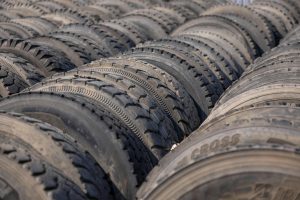The Environmental Impact of Modern Cars Explored
As modern society continues to rely heavily on personal transportation, the impact of cars on the environment has become a growing concern. While the convenience and efficiency of cars have greatly benefited our daily lives, the harmful emissions and resource consumption of these vehicles have taken a toll on the health of our planet. In this article, we will explore the environmental impact of modern cars and the efforts being made to mitigate their effects.
The Evolution of Cars and Their Impact on the Environment
The advent of cars in the late 19th century revolutionized the way we travel and transport goods. However, with the rise in popularity of cars, came the increase in carbon emissions and depletion of natural resources. As of now, more than 1 billion cars are in use worldwide, emitting an estimated 9.5 billion tons of carbon dioxide each year.
The Harmful Emissions of Cars
Cars emit various pollutants, including carbon dioxide, nitrogen oxides, and particulate matter, that contribute to air pollution and climate change. According to the Environmental Protection Agency (EPA), the transportation sector is the largest source of greenhouse gas emissions in the United States, with cars and trucks accounting for 82% of the total.
Carbon Dioxide (CO2) Emissions
Carbon dioxide is the most abundant greenhouse gas emitted by cars. As engines burn fuel, they release CO2 into the atmosphere, trapping heat and contributing to the warming of the planet. Additionally, when fossil fuels, such as gasoline and diesel, are extracted and refined to power cars, they emit even more CO2.
Nitrogen Oxides (NOx) and Particulate Matter (PM) Emissions
Nitrogen oxides and particulate matter are other harmful emissions caused by cars. They are produced when high temperatures in car engines react with nitrogen and oxygen in the air. These pollutants not only contribute to air pollution, but they can also cause respiratory problems and other health issues in humans.
The Depletion of Natural Resources
In addition to the emissions from cars, the production and use of cars also deplete natural resources. The production of cars requires vast amounts of energy, raw materials, and water. For instance, the production of one car can generate up to 28 tons of CO2. Moreover, the energy needed to produce cars comes primarily from fossil fuels, which are non-renewable resources.
Efforts Being Made to Mitigate the Impact of Cars on the Environment
Thankfully, there are ongoing efforts to reduce the environmental impact of modern cars. One of the most promising initiatives is the development of electric and hybrid cars. These vehicles emit significantly less carbon dioxide and are powered by clean energy sources such as solar or wind power. Additionally, advancements in technology have led to more fuel-efficient engines, significantly reducing the amount of CO2 emissions.
The Role of Government and Regulations
Government regulations and policies play a crucial role in addressing the environmental impact of cars. Countries around the world are implementing stricter emission standards and incentivizing the production and use of eco-friendly vehicles. For example, the European Union has set targets for automakers to reduce the average CO2 emissions of new cars by 37.5% by 2030. Many governments also offer incentives such as tax breaks and subsidies to encourage citizens to purchase electric or hybrid cars.
The Responsibility of Manufacturers
In addition to government regulations, car manufacturers are also taking steps to minimize the environmental impact of their vehicles. Many companies are investing in research and development of cleaner and more efficient engines, as well as using more sustainable materials in the production of cars. They are also implementing recycling programs to reduce waste generated from the production process.
In Conclusion
The impact of modern cars on the environment cannot be ignored. From harmful emissions to the depletion of natural resources, it is evident that changes need to be made to lessen their impact. However, with the efforts being made by governments, manufacturers, and individuals, we can reduce the environmental impact of cars and create a sustainable future for generations to come.









